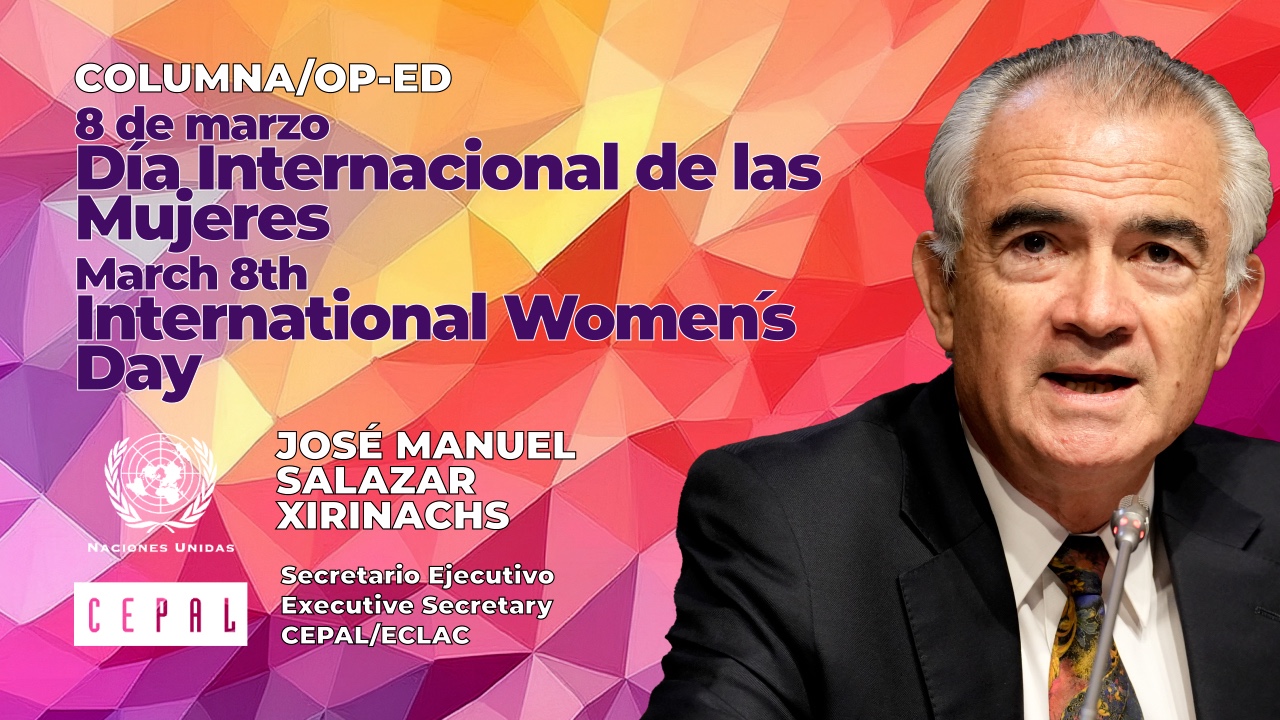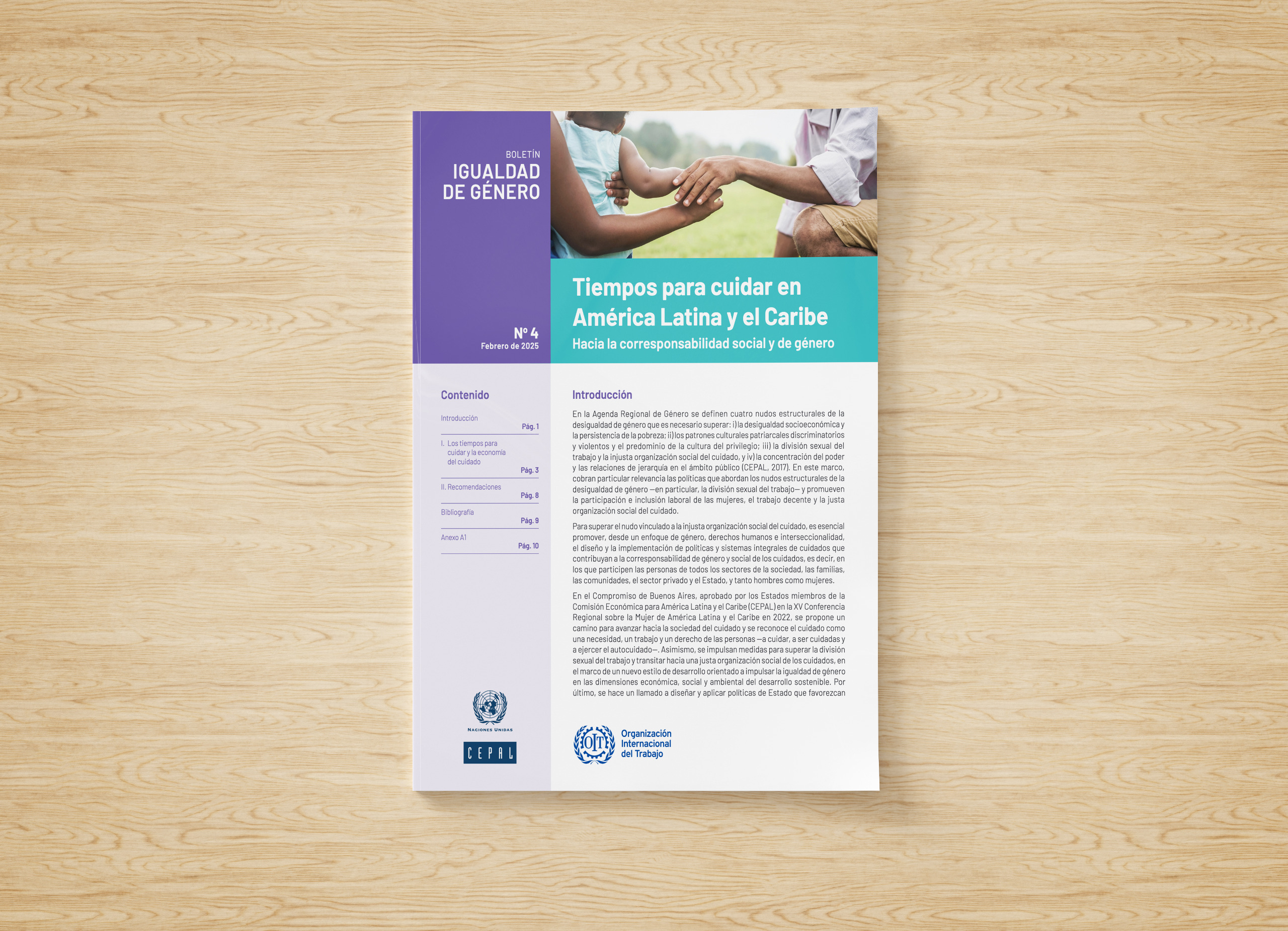Accelerating Progress Toward Substantive Equality and the Care Society
Work area(s)

In 1975, the United Nations commemorated International Women’s Day for the first time, recognizing centuries of women’s struggles for equality, development, and peace.
Latin America and the Caribbean have made significant progress in achieving legal equality. Today, women have on average, more years of education than men and are increasingly occupying decision-making positions. However, gaps persist in all countries. In the region, female labour force participation remains low: only 50% of women participate in the labour market, compared to 75% of men. Moreover, their participation is marked by informality, the wage gap, and a disproportionate burden of unpaid care work, which limits their autonomy. Poverty also has a female face: for every 100 men, there are 121 women living in poverty.
This structural inequality is further aggravated by the care crisis, characterized by increasing demand and a chronic lack of investment and care policies, alongside the rapid aging of the population and climate change.
At ECLAC, we have emphasized the urgency of advancing toward the care society, a collective and multidimensional approach that prioritizes the sustainability of life and the planet. We reaffirm our commitment to supporting countries in advancing comprehensive care policies and systems that ensure the rights of both those who receive care and support and those who provide it, as well as the right to self-care, based on the principles of equality, universality, and social and gender co-responsibility. Care must therefore be a shared responsibility among men and women, families, communities, businesses, and the State. The care society is one of the essential transformations in the region’s development models.
Aligned with this vision, Latin America and the Caribbean have consolidated a deep, progressive, and comprehensive Regional Gender Agenda, which guides public policies. As part of this path, the XVI Regional Conference on Women in Latin America and the Caribbean, to be held in August this year in Mexico, will be a key intergovernmental forum to accelerate progress toward substantive equality and the care society.
Additionally, 2025 marks a pivotal year for the women’s rights agenda, with the commemoration of two historic global milestones: the First World Conference on Women (Mexico, 1975) and the 30th anniversary of the Beijing Declaration and Platform for Action (1995), both reaffirming the urgency of fulfilling outstanding commitments.
Faced with a historical and structural demand, it is time to redouble our efforts to achieve full respect for women's rights. It is time to accelerate progress toward substantive equality and promote the care society as the horizon for our collective course. Acting today means sowing hope. Achieving this goal requires intergenerational collective action, strategic investments, and regional cooperation. Promoting the care society not only transforms economies and societies but also reaffirms our unwavering commitment to building a more productive, inclusive, and sustainable future.
The current reality calls us to prevent setbacks and accelerate change. The future is in our hands.
By José Manuel Salazar-Xirinachs, Executive Secretary of ECLAC (United Nations Economic Commission for Latin America and the Caribbean).
Related content

ECLAC and ILO Call on Countries in the Region to Adopt Regulations to Increase Time for Care in Latin America and the Caribbean
Today, the two United Nations organizations launched a bulletin titled Time for care in Latin America and the Caribbean: Towards social and gender co-responsibility.
Type
Contact
Public Information Unit
- prensa@cepal.org
- (56 2) 2210 2040
